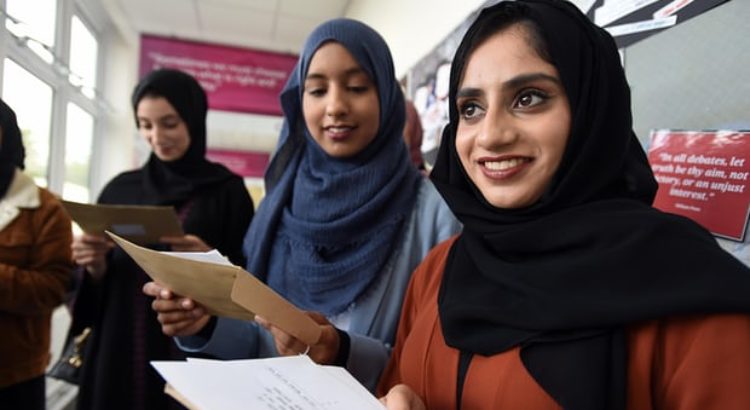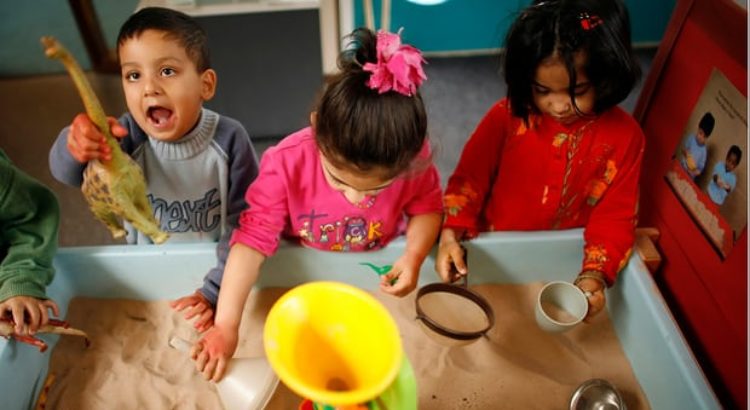By Fiona Millar
A significant number of young people are turned off by traditional higher education. They should have a decent alternative
This year’s A-level results day saw grades down slightly, universities awash with places, and signs that young people might be starting to vote with their feet, and not in the direction successive governments have predicted. What is going on? For the past 20 years, encouraging more young people into higher education has been a central aim of education policy. Until now there was no real reason to think this plan wasn’t working.
Around a third of all school-leavers go on to higher education at 18, and that figure rises to almost 50% by the age of 30. But a survey tracking aspirations for a university education among pre-GCSE pupils released on Thursday by a social mobility charity, the Sutton Trust, suggests that the wind might now be blowing in a different direction. The trust has been monitoring aspirations for the past 15 years and reports a falling proportion of young people who think university matters. The survey also shows there is still a marked difference in attitudes towards higher education between students from different social backgrounds.
A blip or a worrying straw in the wind? We should fear the latter as it would point to a growing and glaring omission at the heart of our education system – the failure to cater adequately for those for whom university may not be the right choice. One obvious reason for disenchantment (reflected in the survey) is the high cost of tuition fees and living expenses. A degree generally leads to higher wages, and employers increasingly seek this level of education when recruiting – even for non-graduate jobs. Up to a third of graduates may now be working in low-skilled jobs.
But the survey also reveals that of those not planning to attend university, 58% cite not enjoying “that type of learning”. We need to understand why this is, what we might do about it. The assumption that everyone can and should enjoy an academic education is almost certainly flawed. Like many other graduates from a Russell Group university – in my case at a time when only 10% of the population went to university and were fully funded to boot – I believe every young person should have the chance I had. Not just of an academic education and a route into professional work, but also the opportunity to learn and develop socially and emotionally, preferably away from home, without the pressure of having to earn a living.
However, as a parent and a school governor I also know this path isn’t right for everyone. The over-academisation of the school curriculum and the devaluation of any sort of assessment that doesn’t involve a high-stakes exam may now be demoralising many young people, in particular those who most need to see the point of education.
There have been signs throughout this academic year that the latest incarnation of the GCSE – increased content, no coursework and lengthy exam papers – might be a massive switch-off to key groups of pupils. And the failure over decades to develop alternatives to academic study, in the form of high-status technical education and apprenticeships, is starting to look like a criminal act, especially in the run-up to Brexit when skilled workers from elsewhere may not be readily available. Over the past 50 years, a series of vocational qualifications have come and gone and never garnered the kudos of O-levels, GCSEs or A-levels. So we should not be surprised that traditional qualifications still reign supreme, that university still sits at the pinnacle of the education system and that growing numbers of students see no realistic alternative routes into fulfilling work.
Most people probably haven’t even heard of the new T-levels – the current government’s answer to this endemic English problem. These apparently “world-class” qualifications won’t even come on stream until 2020; and they will have to be delivered in woefully underfunded further education colleges. Even worse – there are barely 100 degree apprenticeships on offer, a drop in the ocean compared with thousands of more conventional courses. So for the growing number of young people who feel university is not for them there really isn’t anything concrete to aspire to.
The Sutton Trust is right: more maintenance grants and apprenticeships would probably help. But what is really needed is a huge culture shift, away from the assumption that academic is best and towards a broader vision of what makes a real education. A vision that should include what might be seen as “that other type of education”: practical, creative, technical, engaging – and, above all, of equal status to a university degree.
Source of the article: https://www.theguardian.com/commentisfree/2018/aug/16/a-levels-results-higher-education-alternatives








 Users Today : 142
Users Today : 142 Total Users : 35459737
Total Users : 35459737 Views Today : 232
Views Today : 232 Total views : 3418204
Total views : 3418204